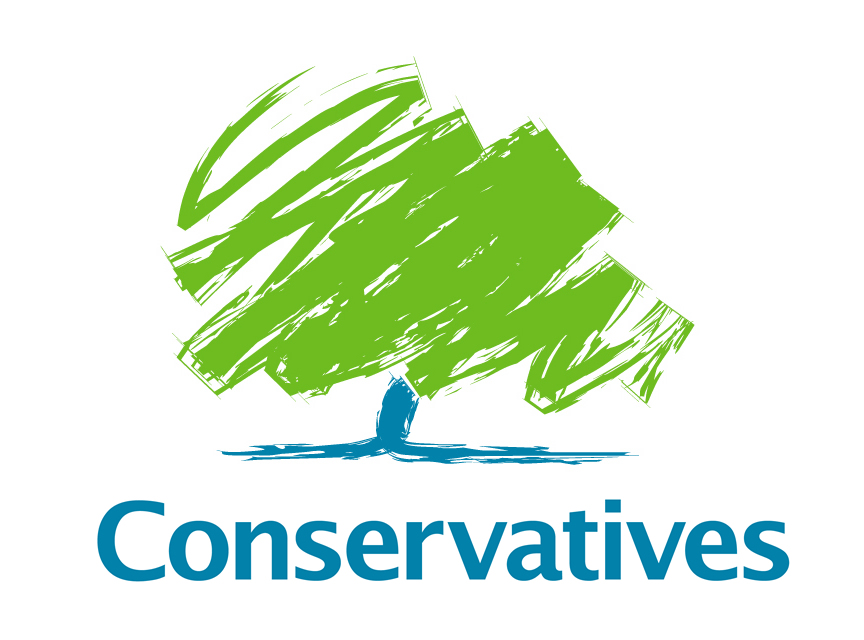The Conservative Party was officially founded in 1834, but traces its roots to 1678 and the formation of the Tory Party - a name the modern party still bears. The Conservatives merged with the Liberal Unionists in 1912, giving the party its rarely-used official name of the Conservative and Unionist Party.
The party spent 57 years of the twentieth century in government, with leaders such as Winston Churchill and Margaret Thatcher some of the most famous figures in recent British history. From 1945 to 1975, the party espoused the post-war social democratic economic consensus established by the Attlee governments of 1945-551; after 1975, however, the party under Thatcher's leadership swung to the right and the Conservative governments of 1979-1997 saw the dismantling of the post-war consensus and the establishment of the neoliberal economic orthodoxy as the lynchpin of British political discourse.
The Party Today
The modern Conservative Party has 174,000 members and is led by David Cameron MP. The Conservatives are the largest party in the current Coalition government, with the Liberal Democrats as their junior partner. They won 36.1% of the popular vote in the 2010 General Election and currently hold 302 seats in the House of Commons (46.5%). They also have 19 seats in the European Parliament (26% of the UK total) and 40.3% of Local Government positions.
Policy Record
The modern Conservative Party dates from 1975; its principal actions from 1979 to 1990 under Margaret Thatcher were the lowering of direct taxes in favour of raised indirect taxes; the privatisation of major national infrastructure and industry including British Steel, British Telecom, British Airways and British Petroleum; the increase in police powers and numbers; and the deregulation of the financial sector. Thatcher was also largely responsible for the introduction of the Single European Act, introducing freedom of movement in goods, services, capital and labour throughout the EEC.
Under John Major, privatisation continued with that of British Rail. Most other policies remained consistent from the Thatcher era, while Major pursued a controversial policy of integration with Europe, signing the Maastricht Treaty in 1992. Conservative economic incompetence led to the catastrophe of Black Wednesday and sparked a recession, eventually culminating in a Labour landslide victory in 1997. In opposition, the party adopted the minimum wage and opposed strongly the UK joining the Euro. Under Michael Howard, it became increasingly critical of the USA and of the Iraq War.
Since the return to government under David Cameron, the Conservative Party has followed a programme of vast public spending cuts, coinciding with a sharp rise in borrowing. They have continued the privatisation of earlier Conservative governments with the sell-off of Royal Mail and have ceded control of many schools through the academies and free schools programmes and parts of the NHS through tranfer of some services to private companies. The party has also pursued a slashing of the social security budget through the introduction of Universal Credit, the benefit cap and the so-called 'bedroom tax'. Promised environmental reforms have not materialised, and whilst the introduction of behind-closed-doors trials for some crimes and the reinforcement of security service surveillance powers have strengthened the coercive state, military expenditure and troop numbers have been drastically cut.
Policy Promises
Economics
- Eliminate the deficit by 2018
- Raise of the tax-free Personal Allowance to £12,500 by 2020
- Raise of the threshold for the 40% income tax band to £50,000
- Further reduce public sector pay
- Maintain of the SMP system for General Elections
- Replace of the Human Rights Act with a British Bill of Rights
- Prevent non-English MPs from voting on English-only Bills in the House of Commons
Health, Welfare & Education
- Maintain current NHS budget in real terms
- Lower benefit cap to £23,000
- Ensure patient access to GPs 7 days a week
Crime and Justice Policy
- Introduce extremism prevention orders to ban radical speakers from communication channels
- Help deal with Islamic State
Europe
- Renegotiate the UK's membership of the EU, with particular focus on migration
- Hold a referendum on UK membership of the EU by the end of 2017
- Support the TTIP trade compact between the EU and the USA
- Complete the HS2 and HS3 high-speed rail links
Important Party Figures
Cabinet Ministers
- David Cameron Prime Minister and Leader of the Party
- George Osborne Chancellor of the Exchequer
- Theresa May Home Secretary
- Phillip Hammond Foreign Secretary
- William Hague Leader of the House of Commons
- Iain Duncan Smith Work and Pensions Secretary
- Chris Grayling Justice Secretary
- Michael Fallon Defence Secretary
- Jeremy Hunt Health Secretary
- Eric Pickles Local Government Secretary
- Nicky Morgan Education Secretary
- Justine Greening International Development Secretary
- Theresa Villiers Northern Ireland Secretary
- Stephen Crab Wales Secretary
- Sajid Javid Culture Secretary
- Elizabeth Truss Environment Secretary
Others
- Michael Gove Chief Whip
- Grant Schapps Co-Chairman of the party
- Andrew Feldman Co-Chairman of the party
- Boris Johnson Mayor of London

No comments:
Post a Comment